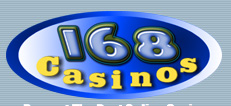Slot Machine: Technology: Payout percentage
Payout Percentage
Slot machines are typically programmed to pay out as winnings between 82 to 98 percent of the money that is wagered by players. This is known as the "theoretical payout percentage". The minimum theoretical payout percentage varies among jurisdictions and is typically established by law or regulation. For example, the minimum payout percentage in Nevada is 75 percent and in New Jersey is 78 percent. The winning patterns on slot machines, the amounts they pay, and the frequency at which they appear are carefully selected to yield a certain percentage of the cost of play to the "house" (the operator of the slot machine), while returning the rest to the player during play. Suppose that a certain slot machine costs $1 per spin. It can be calculated that over a sufficiently long period, such as 1,000,000 spins, that the machine will return an average of $950,000 to its players, who have inserted $1,000,000 during that time. In this (simplified) example, the slot machine is said to pay out 95%. The operator keeps the remaining $50,000. Within some EGM-development organizations this concept is referred to simply as "par". "Par" also manifests itself to gamblers as promotional techiniques: "Our 'Loose Slots' have a 93% Pay-back! Play now!" As an aside, the "Loose Slots" actually may describe an anonymous machine in a particular bank of EGMS.
A slot machine's theoretical payout percentage is set at the factory when the software is written. Changing the payout percentages after a slot machine has been placed on the gaming floor requires a physical swap of the software, which is usually stored on an EPROM but may be downloaded to Non-Volatile Random Access Memory (NVRAM) or even stored on CD-ROM or DVD depending on the technological capabilities of the machine and the regulations of the jurisdiction. Based on current technology, this is a time consuming process and as such is done infrequently. In certain jurisdictions, such as New Jersey, the EPROM is sealed with a tamper-evident seal and can only be changed in the presence of Gaming Control Board officials. Other jurisdictions, including Nevada, randomly audit slot machines to ensure that they contain only approved software.
In many markets where central monitoring and control systems are used to link machines for auditing and security purposes, usually in wide area networks of multiple venues and thousands of machines, player return must usually be changed from a central computer rather than at each individual machine. A range of percentages are preprogrammed into the game software and selected by configuring the machine remotely.
In 2006, the Nevada Gaming Commission began working with Las Vegas casinos on technology that would allow the casino's slot manager to change the game, the odds, and the payouts remotely via a computer. The change cannot be done instantaneously, but only after the selected machine has been idle for at least four minutes. After the change is made, the machine must be locked to new players for four minutes and display an on-screen message informing potential players that a change is being made.
From Wikipedia's
Contents - Slot Machine |
